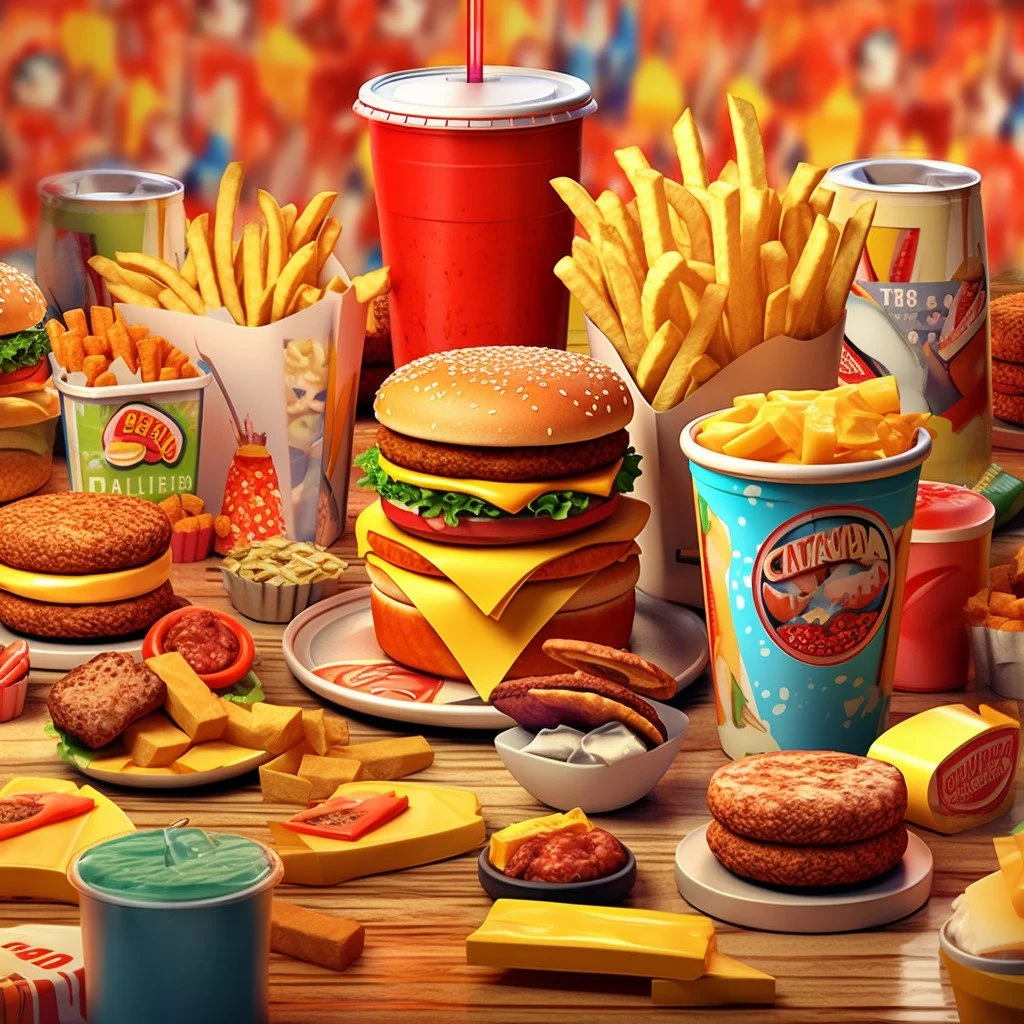We’ve all been there.
Staring down a busy day with a rumbling stomach and even less time. The siren song of the fast-food drive-thru can be hard to resist. It’s fast, it’s familiar, and it hits the spot. But what happens to our bodies when that convenient meal becomes a regular habit? The truth is, fast food can leave us feeling sluggish, unhealthy, and even increase our risk of chronic diseases.
Let’s take a closer look at what that juicy burger, salty fries, and sugary soda are doing inside us.

CAUSE OF OBESITY
The Nutrient Gap
Imagine your body like a high-performance car. To run smoothly, it needs the right fuel. Fast food is often like filling your tank with low-grade gas. Sure, it might get you going, but it’s not providing the essential nutrients your body needs to thrive.
Fast food tends to be loaded with calories, unhealthy fats, and sodium, but skimps on important things like fiber, vitamins, and minerals. This imbalance can leave you feeling tired, drag you down throughout the day, and make it harder to concentrate.

NOT GOOD FOR HEALTH
Sugar Crash and Cravings
Many fast-food meals are loaded with sugar. Those fries you love might be swimming in sugary ketchup, your burger bun might be packed with high-fructose corn syrup, and that soda? Pure sugar water. All this sugar gives your blood sugar levels a rollercoaster ride. A spike followed by a crash can leave you feeling jittery, then tired, and often leads to cravings for even more sugar.
Packing on the Pounds
Fast food is notorious for being calorie-dense. Those tempting menu items might seem reasonably sized, but they often pack a surprising amount of calories. Add to that the fact that they’re typically low in fiber, which keeps you feeling full, and it’s a recipe for weight gain.
Over time, a diet heavy in fast food can lead to obesity, which increases your risk of a whole host of health problems, including heart disease, type 2 diabetes, and some cancers.
Heart Health Woes
Fast food is often loaded with unhealthy fats, particularly saturated and trans fats. These fats can raise your bad cholesterol levels and increase your risk of heart disease, the leading cause of death globally.
Clogged arteries and high blood pressure, both worsened by a diet high in unhealthy fats and sodium, put a strain on your heart and make it harder for it to pump blood efficiently.
Dental Danger Zone
Fast food isn’t kind to your teeth either. All that sugar feeds the bacteria in your mouth, leading to cavities and gum disease. Sugary drinks like soda can erode tooth enamel, leaving your teeth vulnerable to decay.
Mood and Mind Matters
Fast food doesn’t just affect your physical health; it can also impact your mood and mental well-being. Studies have shown a link between a diet high in processed foods and increased rates of depression and anxiety.
The constant sugar crashes and blood sugar fluctuations caused by fast food can also contribute to mood swings and difficulty concentrating.
So, what can you do?
Here’s the good news: You don’t have to swear off fast food forever. The key is moderation and making smarter choices.
Plan ahead: When you’re short on time, pack a healthy lunch or dinner. There are plenty of quick and easy options that are good for you.
Salads can be your friend: Skip the fried options and opt for a grilled chicken or fish salad. Load it up with veggies and a light vinaigrette dressing.
Downsize: Many fast-food restaurants offer smaller portion options. Choose a junior burger or share a meal with a friend.
Hydrate right: Skip the sugary drinks and opt for water or unsweetened tea.
Indulge occasionally: It’s okay to enjoy a fast-food meal from time to time. Just make sure it’s not your go-to choice.
Remember, a healthy diet is all about balance. By making smart choices most of the time, you can enjoy the occasional fast-food treat without derailing your health goals.
[…] fret not! Ayurveda, the ancient Indian system of medicine, offers a holistic approach to reduce belly fat and achieving overall well-being. Here are 7 Ayurvedic habits you can integrate into your daily […]